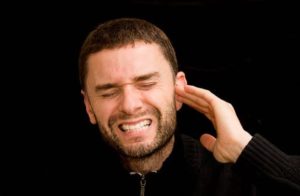WHAT IS TINNITUS?
Tinnitus is the perception of noise in the ears. Tinnitus isn’t actually a condition itself, but instead a symptom of another underlying condition.
WHO SUFFERS FROM TINNITUS?
15-20% of people experience Tinnitus. It is most common as people age and with those who are exposed to loud noises.
WHAT DOES TINNITUS SOUND LIKE?
Tinnitus varies from person to person. It can sound like: ringing, buzzing, roaring, clicking, hissing, humming, or even static.
WHAT CAUSES TINNITUS?
In many people, Tinnitus is caused by age-related hearing loss, exposure to loud noise, earwax blockage, and changes to the bones in the ears. Other, rarer causes include: TMJ disorders, head or neck injury, muscle spasms in the inner ear, blood vessel disorders and even some medications.
HOW DOES TINNITUS IMPACT PEOPLE?
People who experience Tinnitus may experience very few complications while others struggle with fatigue, stress, sleep problems, trouble concentrating, depression or irritability.
HOW IS TINNITUS TREATED?
There are a number of approaches to take to help alleviate Tinnitus. Some examples include earwax removal, noise suppression techniques, noise masking devices, and medications. You and your doctor will work together to determine the best course of action.
WHAT CAN I DO TO REDUCE MY CHANCES OF HAVING TINNITUS?
In order to reduce your chances of experiencing Tinnitus do not smoke, use hearing protection when exposed to loud noises, turn down the volume on your music and TV and take care of your cardiovascular health.
HOW IS IT PRONOUNCED?
Either tin-NYE-tus or TINNA-tus is acceptable.
I THINK I MIGHT HAVE TINNITUS. WHAT SHOULD I DO?
Schedule a consultation with an Audiologist. See any of front desk team members at St. Luke’s and they’ll be glad to assist you. You can even schedule it for the same day as your next eye appointment in most cases.









